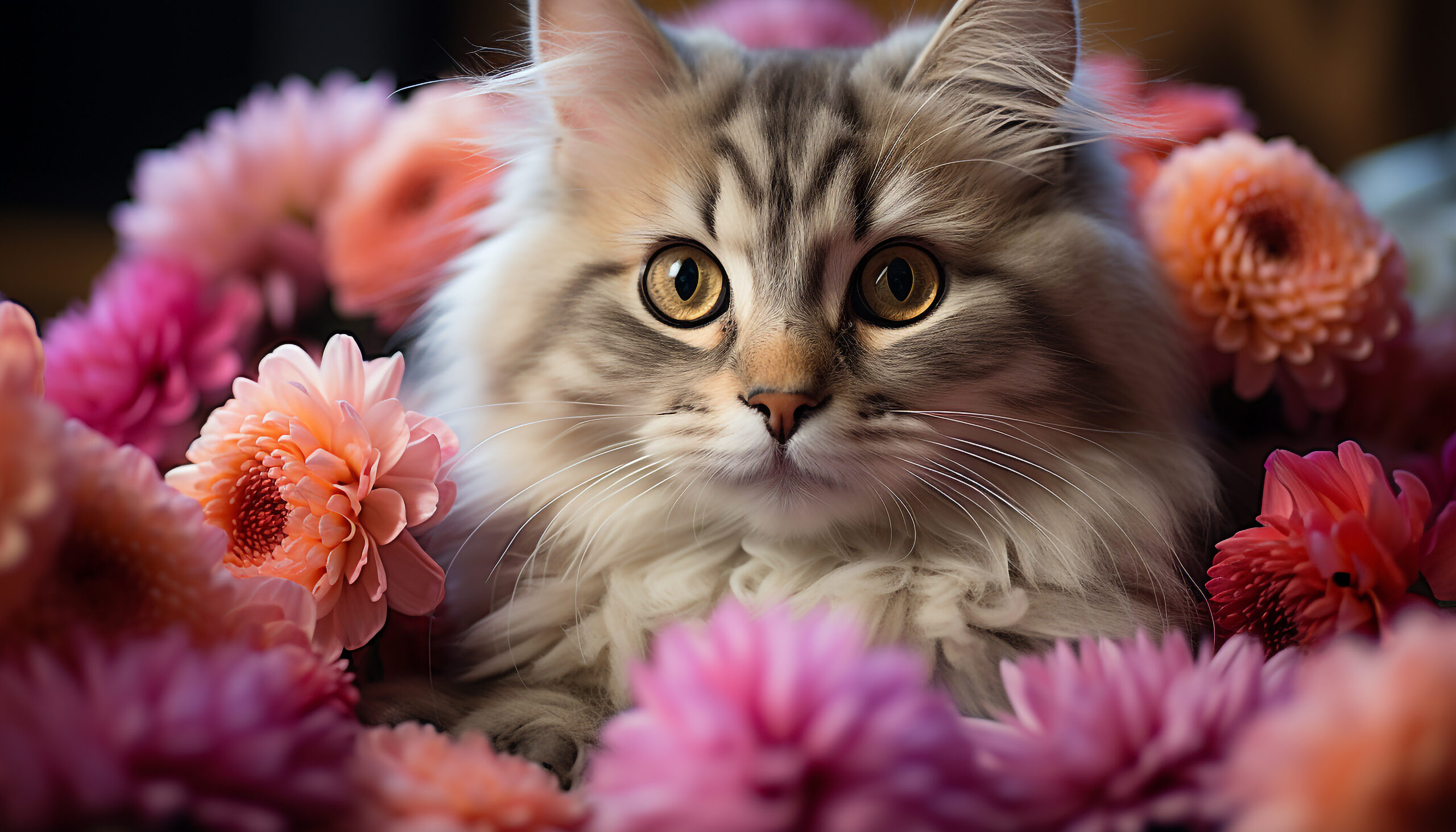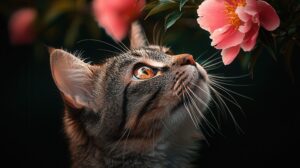
Are Carnations Poisonous to Cats
Feline owners know the drill. You arrive home with a beautiful bouquet of fresh flowers, place it on your dining table and, faster than you can say “delectable,” your inquisitive cat is swatting at petals or munching leaves. But are those blooms safe for your kitty? For instance, you may be wondering, “Are cats allergic to carnations?” This blog will help answer that question, including all information you need to know about cat allergies, toxic plants, and how to keep your furry friends safe around flowers.
Can Carnations Cause Allergies in Cats?
“In short, yes, cats can be allergic to carnations. Though not deadly to cats, whom can tolerate a mild level of poisoning, (The ASPCA rates them as only mildly poisonous) and some carnations may make for a decent feline snack, if they do get eaten, the kitty might just experience adverse side-effects such as rashes, vomiting and/or diarrhea. Nibbling carnation petals, stems or leaves will either make your cat’s skin itchy, or give it an upset tummy. In other words, it’s important to pay attention to what flowers and plants you bring inside your home.
Symptoms to Watch For
If your cat has been exposed to or ingested carnations, here are some symptoms to be aware of:
- Gastrointestinal discomfort (nausea, sickness, diarrhea) may be mild
- Dripping or frothing at the mouth
- Itching or burning on the skin around the mouth and on the face
- Pawing at the face
These may be mild, moderate or severe, but are not usually life-threatening. That said, it’s important to act fast to limit your exposure.
How Come that Cats are Allergic to Carnations?
In the sap of the plant of pompom gentian there are irritant poisons, an irritation of stomach and intestines following its ingestion having been observed. When they’re ingested, these irritants can upset your cat’s stomach or irritate his skin when he touches the plant.
Then again you have flowers like lilys (can lead to total kidney failure in cats) whereas carnations are lightly toxic so not much so like that! With that being said, they are still not appropriate for a cat-safe home.
Include Toxic Plants on the List of Plants To Your Cat Shouldn’t Eat
Although uncomfortable, carnations are among some of the least harmful flowers for cats. Here’s a list of extremely toxic plants to keep away from your pup:
- Lilies: Very toxic, lilies can result in sudden kidney failure in cats.
- Azaleas: Can lead to vomiting, diarrhea and cardiovascular collapse.
- Philodendron: Will irritate the mouth and throat and in large amounts will cause swelling and difficulty breathing.
- Poinsettias: Non-toxic but can cause vomiting and drooling.
- Sago Palm: Extremely poisonous; eating can cause liver failure and death.
Flowers That Are Safe for Homes With Cats
If you’re determined to keep plants and flowers in your home but want to make sure your feline friend stays safe, consider these cat-friendly choices:
- Roses: A timeless selection that skips toxic ingredients altogether. Just watch out for them thorns!
- Sunflowers: These bright and cheerful flowers are safe for your pet to sniff or bat around.
- Orchids: A fragile, yet non-toxic option that instantly elevates any space.
- Spider Plants: They’re not only safe but they make great air purifiers.
Note: It’s always a good idea to verify plant safety with reputable sources like the ASPCA’s Toxic and Non-Toxic Plants List (link) before adding a new plant to your home.
How to Cat-Proof Your Home Decor
Healthy houseplants (even those that are not toxic) are best kept away from mouths. Cats are naturally inquisitive and flexible, and even some plants are still not very good for them to get eaten in larger quantities.
How to Stop Cats from Eating Plant?
- Elevate Your Plants: Put plant babies on shelves or in hanging pots that your cat can’t get to.
- Utilize Citrus: Cats hate the smell of citrus. You can deter them by spraying with diluted orange or lemon water near plants.
- Give Alternatives: Give your cat something safe and tempting to chew such as cat grass or catnip.
- Options for Enclosure: Cover with glass cloches or terrariums to protect plants.
Frequently Asked Questions
Can my cat be hurt from smelling carnations?
Not likely, you can just smell carnations. Commonly, cats are only symptomatic when they have chewed on and ingested some of the plant.
Are all varieties of carnations poisonous to cats?
Yes—carnations are all mildly toxic to cats because of their contact irritant properties.
My cat has eaten a carnation, what do I do?
If your cat gets into a carnation, monitor them for stomach upset or irritation. Provide plenty of fresh water and remove the flower from their l ocation. It symptoms become more severe or continue, contact the vet.
Are fake carnations bad for cats?
Artificial plants are typically safe unless slathered in toxic paints or dyes. Always be sure that artificial flowers and plants are labeled as being non-toxic, for safety’s sake.
Quick Comparison Table
|
Plant Type |
Toxic to Cats? |
Symptoms |
Action to Take |
|
Carnations |
Mildly toxic |
Skin irritation, vomiting |
Monitor or call vet |
|
Lilies |
Highly toxic |
Kidney failure |
Emergency vet visit |
|
Roses |
Non-toxic |
None |
Safe for cats |
Happy and Safe Cat Friendly Home
Designing a cat-friendly home does not have to mean forsaking beautiful plants and flowers. Knowing what plants are safe or what plants are potentially harmful is the first step to keeping your cat out of harm’s way. If you love adorning your house with flowers, opt for non-toxic varieties and stringently follow these suggestions to ensure your feline friend is both happy and healthy.
And remember, an ounce of prevention really is the best cure. Always do your homework before bringing a new plant into your home, and refer to trustworthy sources, such as the ASPCA or your veterinarian, when in doubt.
Curious about the safety of your cat and plants? Leave them in the comments below — we’d be happy to help!

Leave a Reply